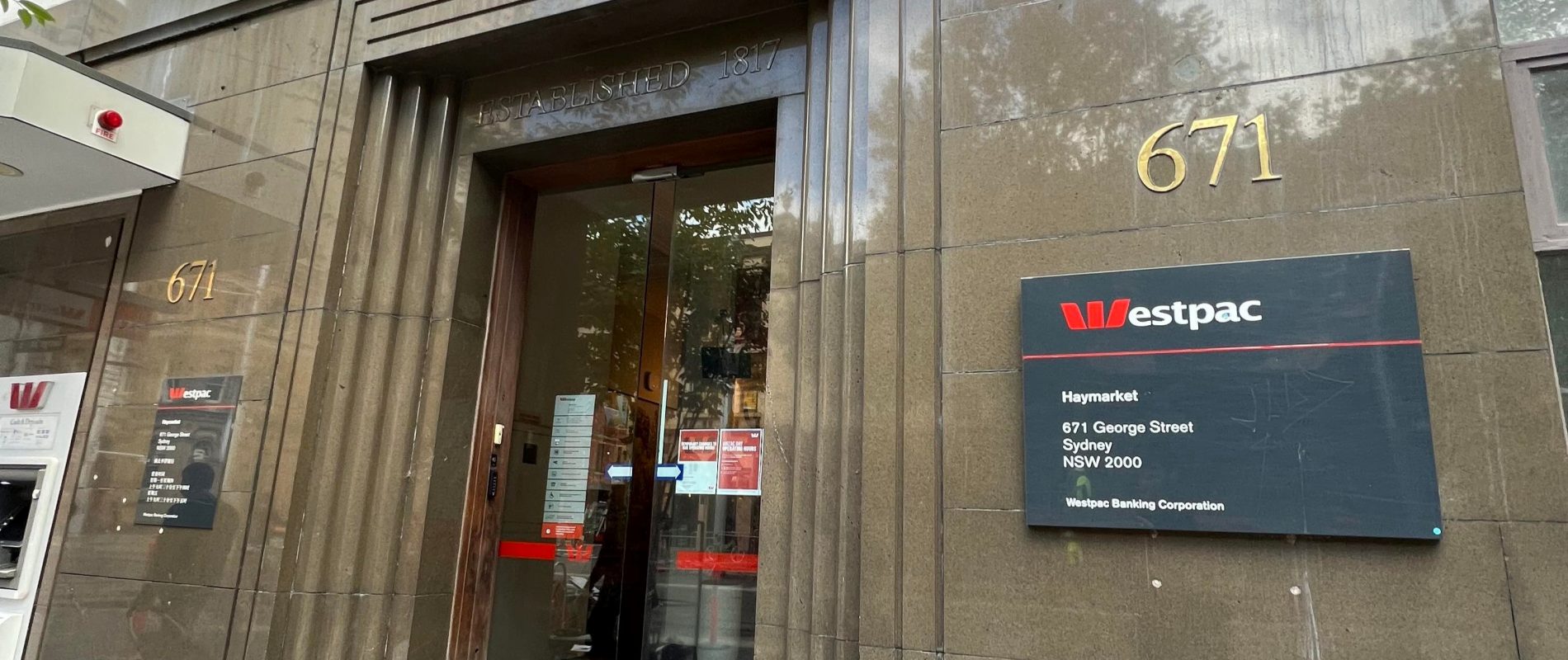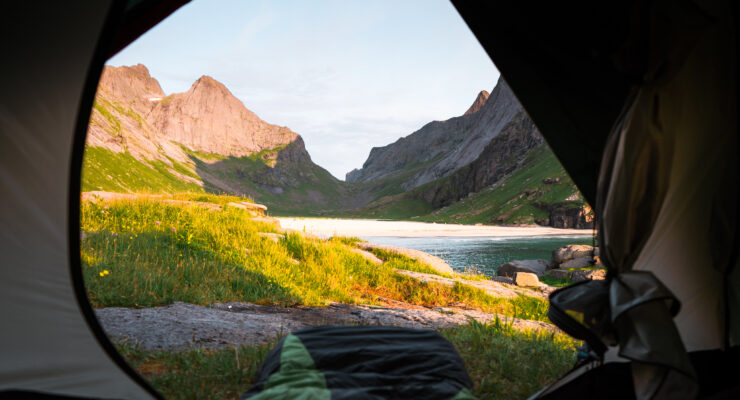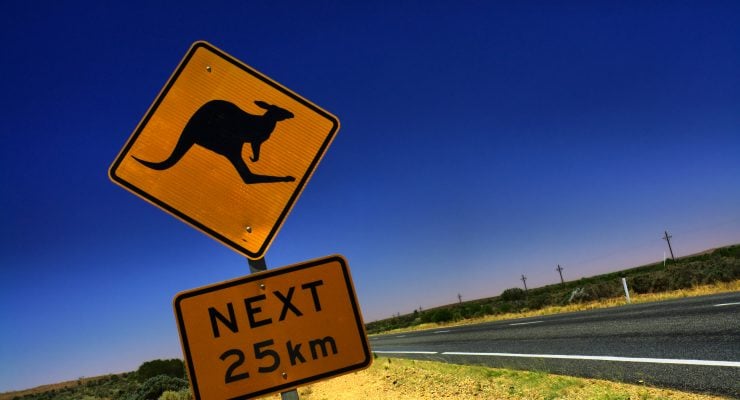If you’re planning a Working Holiday Visa (WHV) in Australia, it’s essential that you open an Australian bank account. We’ll talk you through the different options so that you can pick the bank that suits you best.
Opening an Australian bank account is quick and easy; it’s also easy to close the account when you are ready to leave Australia.
Can I use my home country bank account?
It’s advisable to keep your home bank account open while in Australia; it will make your life easier when your WHV comes to an end and you prepare to return home. You can transfer money between your account in your home country and your Australian account using Wise. Click here to get your first transfer free of charge.
If you plan on working during your WHV, you will need to have Australian bank account details to give to your employer. Having an Australian bank account is also vital for making daily purchases and transactions without any hidden fees. We don’t recommend you pay for daily expenses from your home country bank account because you will run into international transaction fees and fluctuating exchange rates.
How banking works in Australia
Account types
There are two types of bank accounts:
- An everyday transaction account: a current account for your daily payments.
- A savings account: an account to put your savings in (you will receive a small amount of interest each month).
It is recommended to open both accounts if you are given the choice. You can transfer money from your savings account to your current account. Most banks have no-fee offers, so check around for deals before selecting a bank to open your accounts with (more on this below!). You want to pick a savings account without fees.
Bank cards
There are two main types of bank card:
- Debit card (Mastercard or Visa)
- Credit card
Debit cards are the cards that working holiday makers generally use in Australia. They allow you to pay in shops and restaurants, make withdrawals from ATMs, make online purchases in Australia or overseas (it is sometimes necessary to activate the international option online), etc.
Every time you make a payment with your debit card, a check is made to ensure you have sufficient funds to pay. If you don’t have enough money in your account, your payment will be refused; there is no option to go into an overdraft. The specific bank you choose will determine whether you receive a Mastercard or a Visa debit card.
Credit cards are not always offered to working holiday makers as an option (it depends on your specific bank, the upfront amount you can deposit into your account, or the salary you will earn). You won’t really need an Australian credit card, so don’t worry if this isn’t an option for you. It only really becomes important if you plan to move permanently to Australia, where you will need proof of credit history.
The different options for banking in Australia
There are several banks available. Long-term accounts are of little interest to working holiday makers, so you will want to look for a bank that offers deals to newcomers, for example fee-free banking for the length of your WHV.
The main banks in Australia are:
- Australia and New Zealand Banking Group (ANZ)
- Commonwealth Bank of Australia (CBA or Commbank)
- Westpac
- National Australia Bank (NAB)
- Citibank
- ING Direct
- HSBC
Banks are generally open on weekdays from 9.30 a.m. to 4 p.m., often closing at 5 p.m. on Fridays. Some branches will open on Saturdays, but this is not as common.
Please note that you are usually charged a small fee (around AU$2-AU$3) to withdraw cash from an ATM belonging to a different bank. For example, a Westpac customer will be charged a fee for withdrawing money from a Citibank ATM.
However, some banks have an agreement between them, e.g. a Westpac customer doesn’t pay withdrawal fees when making withdrawals from NAB, Commonwealth and ANZ ATMs. Check the agreements before you make your decision.
Offers tailored to working holiday makers
Westpac
Westpac offers one year of free bank charges for newcomers to Australia. They also sometimes give out welcome bonuses!
If you plan to stay in Australia for longer than 12 months, the monthly fee is waived if you can deposit at least AU$2,000 into your account every month (i.e. your salary).
With this deal, you get a Mastercard debit card.
Benefits of Westpac:
- No fees for your first year, and options to waive the fees if you stay longer.
- Westpac partners with banks in other countries, e.g. Scotiabank in Canada or Barclays in the UK. If you already have a bank account with a Westpac partner, it makes it easier to access your money in your home country at the end of your WHV.
ANZ
ANZ does not automatically waive fees for newcomers. Their ANZ Access Advantage account costs AU$5 per month. Note that this monthly fee can be waived if you are under 25 years old or you deposit more than AU$2,000 into your account every month.
With this deal, you get a Visa debit card.
Benefits of ANZ:
- No fees for under 25s.
- ANZ is also used in New Zealand, so you can stay with the same bank if you decide to do a New Zealand working holiday in future.
Commonwealth
Commbank offers a fee-free account for the first year with the Everyday Account Smart Access plan. After the first year, the monthly fee can be waived if you’re under 30 or you deposit more than AU$2,000 into your account every month.
With this deal, you get a Mastercard debit card.
Benefits of Commonwealth:
- No fees for the first year.
- No fees for under 30s if you stay longer than 12 months.
- Lower monthly fees than ANZ and Westpac if you have to pay (AU$4 instead of AU$5 monthly).
NAB
NAB offers the NAB Classic Banking account with no monthly fees (a policy they have had for almost 10 years for all customers, not just newcomers to Australia).
With this deal, you get a Visa debit card.
Benefits of NAB:
- No monthly fees.
How to open your account
To open an Australian account, you have two options:
- Pre-open your account from your home country (not every bank offers this option).
- Open your account when you arrive in Australia.
Note that even if you open your account from your home country, you will need to attend a branch in-person when you arrive. They will ask to see your ID and complete an identity check before your account is verified. Since you still have to attend a branch, it’s just as easy to wait until you arrive to open the account.
Some banks will allow you to book appointments in advance. However, you can always show up at a branch and wait in line to speak with an advisor about opening an account. You will need to bring the following documents:
- Passport
- Proof of visa (not all banks ask for this, but it’s handy to always have a copy!)
- Australian address
- Email address
- Australian phone number (learn more about choosing a phone plan here)
Your Australian bank may also ask you to provide your tax identification number from your home country. This follows a 2017 law that required banks to request this information from new arrivals who are not yet tax residents in Australia. Most won’t ask for this information but if you are asked, you should be able to find this information easily (e.g. Canadians can give their SIN, Brits can give their NI number, etc.).
Getting your debit card
Whether you open the account online or in person, expect delays in your bank card being available, as your debit card will be posted to the Australian address you give. You’ll need to make sure you have enough cash or use Wise to pay for expenses until your card is ready.
You can use your own address in Australia if you’ve already found a place to live, or you can give a friend’s address, hostel address, Post Restante address, etc. Some banks will also allow you to give the bank’s own address and you can pick the card up from the branch.
Top tips
- Before selecting a branch, read the reviews left on their Google page. Some branches are more used to opening accounts for working holiday makers than others. Try and pick a branch that has good reviews for fast and friendly service.
- Plan to spend your first few days in a big city, even if you move somewhere more remote after you’ve set up your new life. It’s much easier to open a bank account, buy a phone plan, apply for your TFN, etc. in a city!
- It is essential to provide an active phone number when opening your account. You will have to validate your account via an SMS sent by the bank. Make sure you’ve sorted your Australian phone number before going to the bank.
- There can be extra delays on the delivery of your debit card at certain times of year (e.g. in school holidays and on long public holiday weekends).
- If you are going on your WHV as a couple, you can open a joint account. This can make it easier to manage your shared expenses. Just inform the supervisor at your appointment that you’d like to open a joint account.
- If opening an account in person, you must do this within six weeks of arriving in Australia. After that, it becomes more complicated to complete the process as a working holiday maker, as we’ll explain below.
Opening a bank account after six weeks
After you have been in Australia for six weeks, opening a bank account becomes more complicated. A points system is then applied and you have to score 100 points to be able to proceed. Each identity document you provide is worth a certain number of points that add up to 100.
The problem is many working holiday makers won’t have many of the documents that count (e.g. an Australian birth card or driving licence). If you have left opening a bank account until the six-week mark, you can follow this link to see the different types of accepted documents and the points system.
Of course, if you open your account when you first arrive, you will avoid this extra hassle! Opening an account as soon as you arrive will also help you get started quicker with employers, as you will have your bank details ready to give them.
Payment methods in Australia
Bank cards (debit or credit), contactless payments and cash are the most common ways of making payments in Australia.
EFTPOS cards are a basic type of debit card that you can use to withdraw money from ATMs or pay for items in-store. However, it can’t be used to make online purchases, and EFTPOS cards also won’t work when travelling abroad.
For that reason, most working holiday makers use the Mastercard or Visa debit card that comes with their bank account for payments in Australia. Remember that most backpackers won’t qualify for credit cards. If you do get a credit card, it’s worth using for regular payments to build up an Australian credit history (if you plan on making a permanent move).
Cheques are still used occasionally, sometimes to pay rent. More often, cheques are used as a way of paying temporary workers. If you work on a farm or as a fruit picker, you may well be paid with cheques. You can usually exchange your cheque for cash in local shops, although the shop will keep a portion of your wage as commission.
The “cash out” system
At many supermarkets, if you pay with your debit card, you can ask for “cash out” (known as “cashback” in other countries). An amount of your choice is added to the total purchase price of a transaction. When you pay with your debit card, you receive that amount in cash on top of the original purchase.
For example, if your grocery bill is AU$20 and you want to “cash out” AU$10, you ask to pay a total of AU$30. You will pay AU$30 on your debit card and leave with your groceries and AU$10 in cash.
The cash out system is a good way to skip ATM fees, since most Australian banks charge a small fee to withdraw money from an ATM that doesn’t belong to their network.
















 Français
Français English
English




0 comments
{{like.username}}
Loading...
Load more